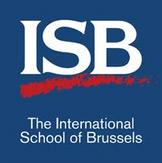


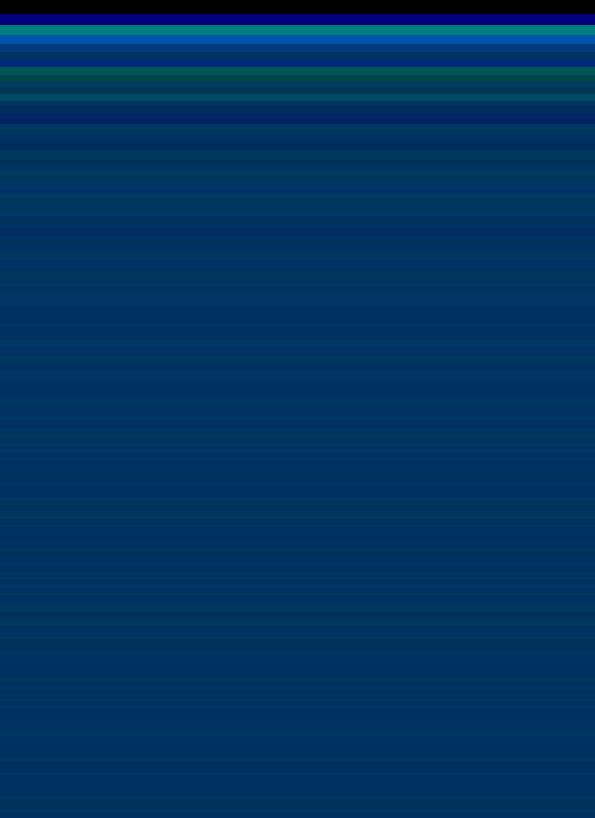
Success in the Senior Year 2024-25 1
Contents
Introductory Note
Skill Development
Assessment
AP Assessment
BTEC Assessment
IB Assessment
Assessment of the IB Core Components
Criteria for Award of the IB Diplomas
US High School Diploma
Learning Support & Assessment
Academic Integrity
Projected and Predicted Grades
Counselling
Senior Year Timeline
IB Deadlines
IB Program Senior Agreement
Senior Counselling Agreement
Senior Privilege
Useful Resources
IB IB IB IB IB IB IB
IBlearner profile

The aim of all IB programmes is to develop internationally minded people who, recognizing their common humanity and shared guardianship of the planet, help to create a better and more peaceful world. As IB learners we strive to be:
We nurture our curiosity, developing skills for inquiry and research. We know how to learn independently and with others. We learn with enthusiasm and sustain our love of learning throughout life.
We develop and use conceptual understanding, exploring knowledge across a range of disciplines We engage with issues and ideas that have local and global signi cance.
We use critical and creative thinking skills to analyse and take responsible action on complex problems We exercise initiative in making reasoned, ethical decisions
We express ourselves con dently and creatively in more than one language and in many ways We collaborate e ectively, listening carefully to the perspectives of other individuals and grou p s .
We act with integrity and honesty, with a strong sense of fairness and justice, and with respect for the dignity and rights of people everywhere We take responsibility for our actions and their consequences
We critically appreciate our own cultures and personal histories, as well as the values and traditions of others We seek and evaluate a range of points of view, and we are willing to grow from the experience
We show empathy, compassion and respect. We have a commitment to service, and we act to make a positive di erence in the lives of others and in the world around us.
We approach uncertainty with forethought and determination; we work independently and cooperatively to explore new ideas and innovative strategies. We are resourceful and resilient in the face of challenges and change
We understand the importance of balancing di erent aspects of our lives intellectual, physical, and emotional to achieve well-being for ourselves and others We recognize our interdependenc with other people and with the world in which we live.
We thoughtfully consider the world and our own ideas and experience We work to understand our strengths and weaknesses in order to support our learning and personal development.
The IB learner pro le represents 10 attributes valued by IB World Schools. We believe these attributes, and others like them, can help individuals and groups become responsible members of local, national and global communities.
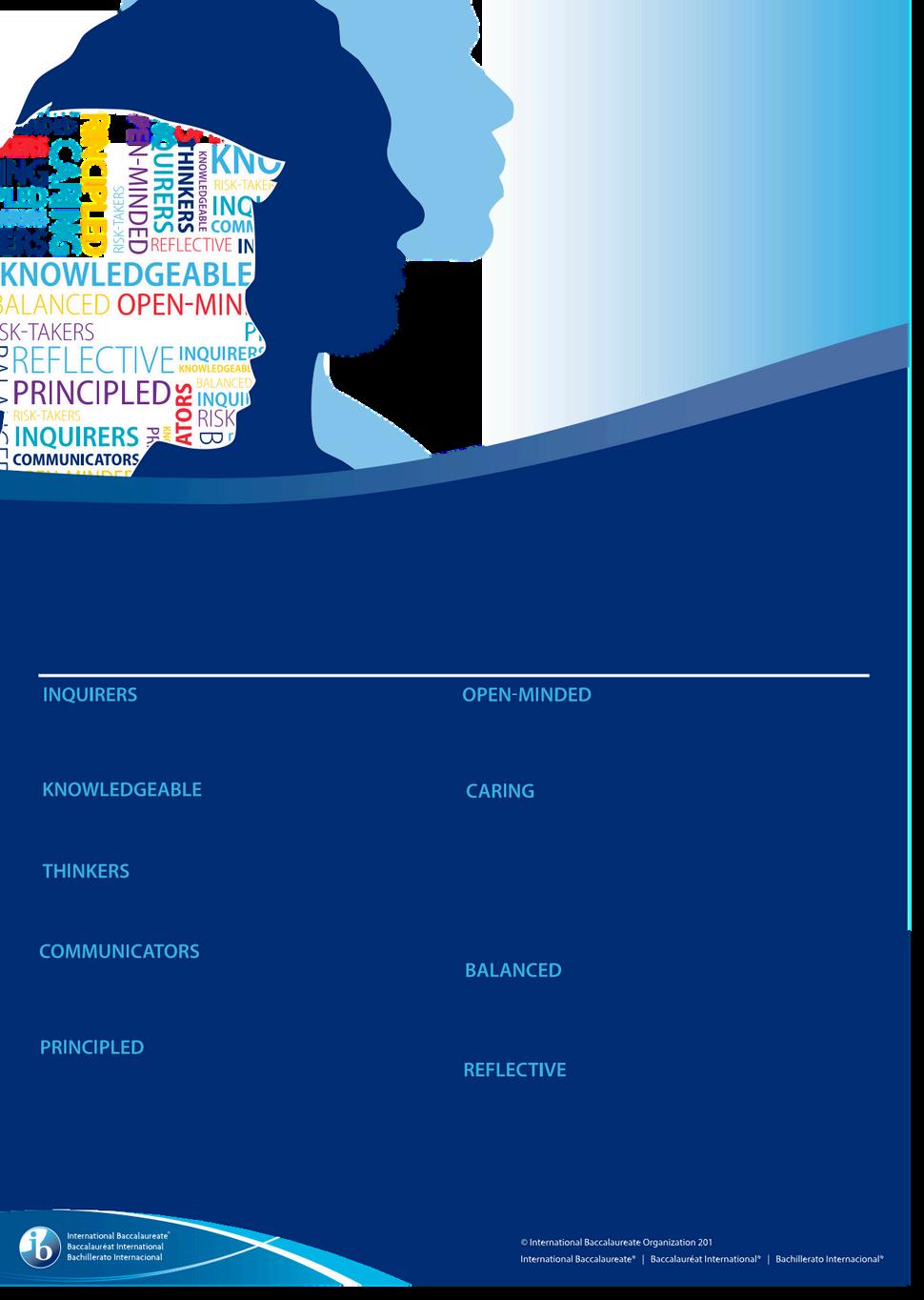
IB
ile e learner profil learner profileIB learn
learner pro
IB
learner prof learner profileIB lear learner profile learner profile learner profileIB lear learner profi
3
Introductory Note
“The International Baccalaureate® aims to develop inquiring, knowledgeable and caring young people who help to create a better and more peaceful world through intercultural understanding and respect.”
from “The IB Mission Statement,” International Baccalaureate Organization, 2023
Congratulations on reaching your final year of high school at ISB! We hope that this upcoming year is one that is filled with friendship, fun and a sense of accomplishment! We know it will also be a time that includes hard work, time management and balance of the many deadlines and demands of a senior student
Regardless of your pathway, completing your final year at ISB can feel challenging. An ISB education, regardless of whether you are studying the IB diploma, IB courses, AP courses, BTEC diploma or the US High School diploma, is recognised and respected for its rigour. In order to have a successful year, you will need to build upon a combination of skills and attitudes to be able to achieve your full potential Happily, these same skills and attitudes will benefit you throughout your life.
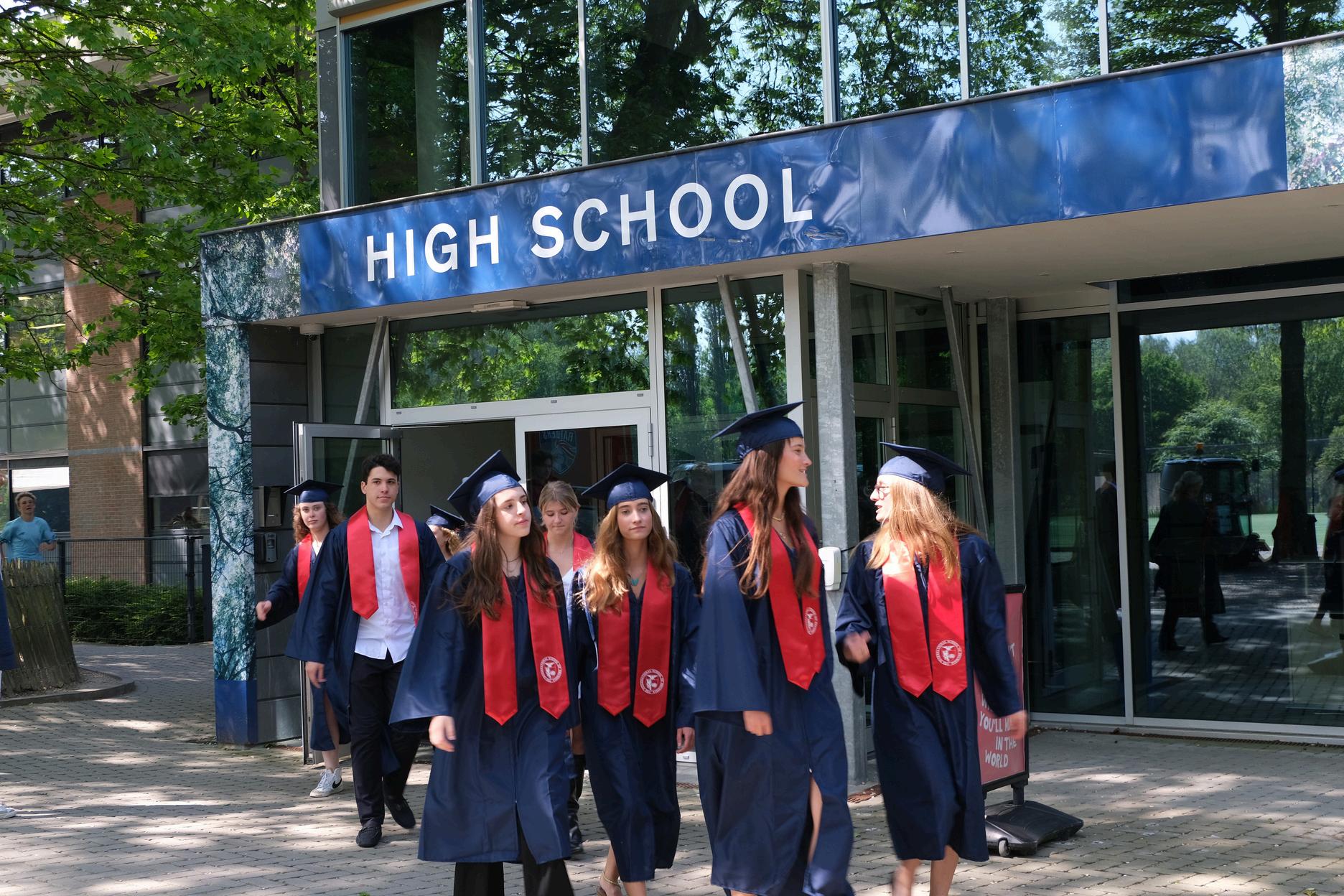
As self-management and the ability to stay on top of your tasks and deadlines, is a key to your success, we have developed this book to guide and organize your practices to manage your workload. The academic processes and schedule have been carefully designed to meet the needs of each course while spreading out the workload as evenly as possible over the senior year Please remind yourself of this intent as you think about your progress towards the deadlines.
4
There may be times during this year that the demands of work feel insurmountable and your levels of stress might be elevated If you experience these periods, please remember that you are not alone, and that there are people who are here to help you While parents and friends are invaluable sources of advice and support, you are also encouraged to communicate with your:
Subject teachers
Advisors
High School Counsellors
Academic Coordinators
HS Leadership team
We hope that this year is a time of looking forward to your future as an independent young adult and reflecting back on the many years of education and experiences that you have undertaken Your challenge for this year will be finding the right balance of living in the present with your family and friends and planning for future study and careers! Along this journey, please remember that you have many people who believe in you and are here to support you at ISB!
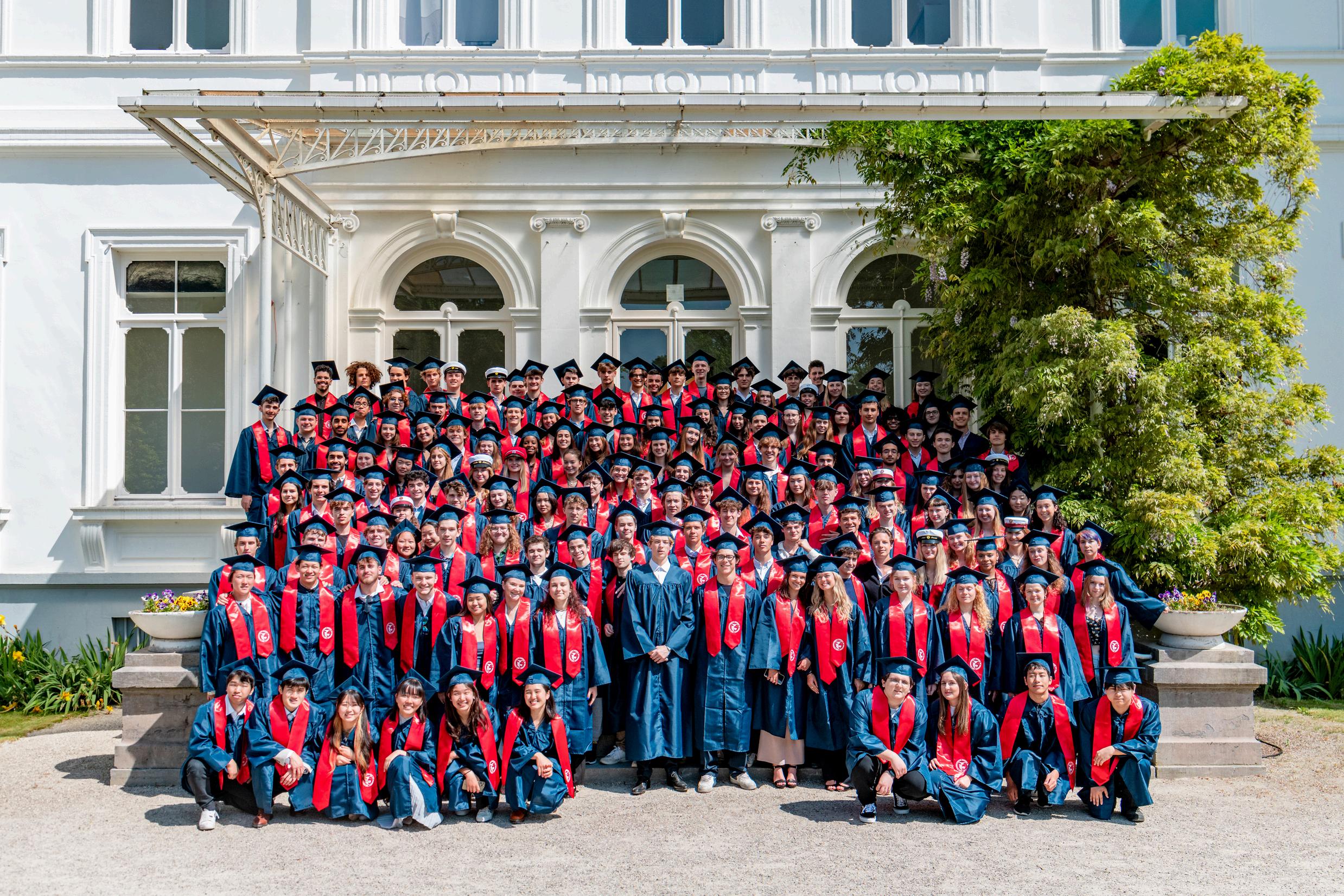
5
Skill Development
With the advent of new technologies,, schools and curricula have shifted to focus not only on content knowledge, but also on the transferable skills that students will need to be successful beyond high school. Over the course of your senior year, you will need to employ and develop these skills to be successful in your chosen pathway and to ensure that you can continue to learn and grow throughout your lives Here are some ways you will employ and develop these vital skills:
Social skills 1
Learning is a collaborative process and so you will need to work constructively with other students and teachers By discussing your understanding, your plans or your concerns with others you will make more progress than trying to go it alone. At times you may have to use your skills to resolve conflicts which might arise within school, or between your academic and social life
2
Self Management skills
An important step towards success is accepting responsibility for the tasks you have to undertake, and being able to make good decisions that impact your work and that of others These decisions could be long term goals, or the plans that you make for the week ahead
Your learning schedule is designed to ensure you can achieve balance in your daily lives. Most of you will have time during the day when you do not have classes Note that the school has many spaces where you can work during these study blocks It is essential that you approach your day with a plan for working effectively Remember, your potential success is directly related to your productivity If you do not use the time well, you cannot get that time back
Looking after yourself is another key part of success. This means that time management should extend beyond school hours, ensuring that you adopt a healthy lifestyle that includes structured work time, but also enough rest and relaxation
3
Communication skills
As seniors, you will have to use language effectively in many situations to achieve a number of purposes In some of your courses,these skills will be explicitly assessed In others, the skills may help you organize your ideas, decode connections between ideas and fully understand and use written and verbal texts. Outside of the classroom, it will also be necessary for you to communicate with your counsellor about all matters related to university applications
6

Research skills 4
Independent learners employ a variety of tools to gather the information they need and have systems to manage this information You will need to plan ahead to make effective use of the information you collect, and you will need to use skills for referencing the work of others This applies to any research you may do - from the research related to the subjects you are studying, to research into the requirements of your choice of college or university.
5 Thinking skills
Your courses will require you to sharpen your thinking skills in many different ways. Sometimes you will simply need to recall knowledge, other times you will need to infer, analyze, evaluate or use evidence to support a claim Understanding the different thinking skills required will help you grow as a learner and will strengthen your revision skills You will then be able to target your revision strategies and use revision notes, flashcards, quizlet, Khan Academy videos, Kognity, past papers or other methods to make sure that your learning is active, regular and gives you feedback on your progress.
7
Assessment
ISB Assessment
ISB is a US High School Diploma accredited institution and as such awards grades and credits for courses completed at ISB and therefore all students receive ISB reports using ISB grades with a scale from 1 to7 (regardless of the grading scale of any external qualification) Predicted or awarded grades for AP, BTEC, and IB can be provided as needed on separate documentation, and in the end the awarded grade will be determined directly by these external organisations.
The chart below is a representation of the ISB grading structure in the Upper School. The chart also shows the alignment of the external grading systems from organisations of which we offer additional courses (IB, AP, BTEC) Courses that have IB, AP, or BTEC in the course title at ISB are graded using external criteria and descriptors provided by their accrediting bodies Those grades are then converted to ISB grades as represented below and reported as such on ISB official documentation
Due to the transient nature of international school populations, and in line with our school’s mission and values, ISB does not weight grades, calculate GPA, or rank our students.
ISB Grade Descriptors
8
Formative
IB Grades AP Grades BTEC Grades Converts to ISB Grades Effective Application 7 High 5 High D (*) ⇒ 7 Effective Application 6 Low 5 Low D ⇒ 6 Emerging Application 5 4 M ⇒ 5 Emerging Application 4 3 High P ⇒ 4 Developing 3 2 Low P ⇒ 3 Does not meet/ Beginning 2 1 F ⇒ 2 Does not meet 1 1 F ⇒ 1
& Skills Descriptor
AP Assessment
In AP Courses, there are two types of assessment: School-based assessment AP External Assessment (AP Exams)
School-based assessment is used by teachers to monitor how well a student is progressing in a particular subject This can include assignments, tests, quizzes, projects or mock examinations These assessments are created by, assigned by and marked by the teacher School-based assessment can be summative or formative in nature and is designed to help students understand assessment expectations, standards and practices

External assessments for AP courses are the AP exams The exams are marked solely by an external examiner.
AP Courses are scored on a 1-5 scale, each representing how qualified the student would be to earn credit at the university level for the demonstration of their knowledge This grade comes solely from the external exam that is administered in May of the academic year that the student completes the course

The course offered at ISB is designed to help the student learn the material as well as prepare for the exam ISB will award a US High School grade on its report on a 1-7 scale based on the conversion chart listed above
9
AP Grade Indicators
BTEC Assessment
At ISB, we offer the BTEC Level 3 Diploma, which is 720 guided learning hours. The BTEC programme is designed with a flexible, unit-based structure and knowledge that can be applied to project-based assessments. It follows a model of continuous, on-going assessment, and there is no final culminating exam.

For each unit, you will be asked to demonstrate your knowledge and understanding by completing tasks that are assessed according to criteria at different levels of Pass, Merit and Distinction. Upon completion of a unit, your overall grade is determined holistically:
If you demonstrate all of the Pass criteria, you will earn a Pass for the unit
If you demonstrate all of the Pass and all of the Merit criteria, you will earn a Merit for the unit
If you demonstrate all of the Pass, Merit and Distinction criteria, you will earn a Distinction for the unit
First Submission of Work
In each unit, there are usually several tasks to complete that are summatively assessed
The BTEC programme models real-life situations in that you are expected to adhere strictly to the deadlines set out by your teacher. This means that your success depends on planning your time and managing your workload carefully. When submitting your work, you will need to ensure that:
You submit your work on time and meet the deadline given by your teacher
You also submit a completed Assessment Record Sheet at the same time you submit your assignment/task.
10

grades if you do not get to the level you want on your first submission of your work. Hence, if you do not demonstrate any of the criteria at a point in time when you submit your work summatively for the first time, you are allowed to resubmit your work, as long as all of the following requirements are met:
The initial deadlines set in the assignment have been met, or the agreed deadline extension 1. has been met (by using the Request to Extend a Deadline form). 2.
The teacher judges that the student will be able to provide improved evidence without further guidance 3
The teacher has authenticated the evidence submitted for assessment and the evidence is accompanied by a signed and dated learner declaration of authenticity 4
Work that is being resubmitted can be done in order to meet Pass, Merit or Distinction criteria
Every task in a unit that is submitted is eligible for one resubmission When work is resubmitted, the following requirements must be met for the resubmitted work:
The work can be completed by the student with no further guidance from the teacher 1
If the resubmission is an edited and improved version of the original work, then the new work must be clearly indicated in the work produced - for example, either in a different color font or highlighted font 2
The resubmission assessment record sheet must be completed and submitted with the work. 3.
The deadline for resubmission will be determined by the teacher, but must be within 15 working days from the day the assignment and assessment results are returned 4
11
Retake
If, after the first submission and a resubmission of your work, you still have not demonstrated all of the Pass criteria for a unit, you will be allowed to retake the unit at the Pass criteria level only, under the following condition:
You have met all of the conditions listed above in the Resubmission of Work section.
The Retake assignment will then follow these guidelines:
The retake will be a new task or assignment targeted only to the pass criteria which were not achieved in the original assignment. You will not be able to earn a merit or a distinction grade for a retake assignment
The teacher must agree and record a clear deadline before the student starts a retake
There will be no further resubmissions or retake opportunities for the unit.
The student and the teacher must sign declarations of authentication as they both did for the previous submissions, and a completed assessment record sheet must be submitted with the retake assignment.
As this is a model of continuous and on-going work, it is important to have well-developed selfmanagement skills The BTEC model of assessment suits many learners as there is an emphasis on applying knowledge to real-life situations and on using different modes of communication to explain, analyse and evaluate concepts in context However, this does not mean that the course is without intellectual rigour, and the assessment structure of continuous and regular tasks that are set from the beginning of the course adds challenge. Students will be most successful if they develop and use strategies to organise their time and remain engaged with their teachers so that the process of continuous learning is most effective
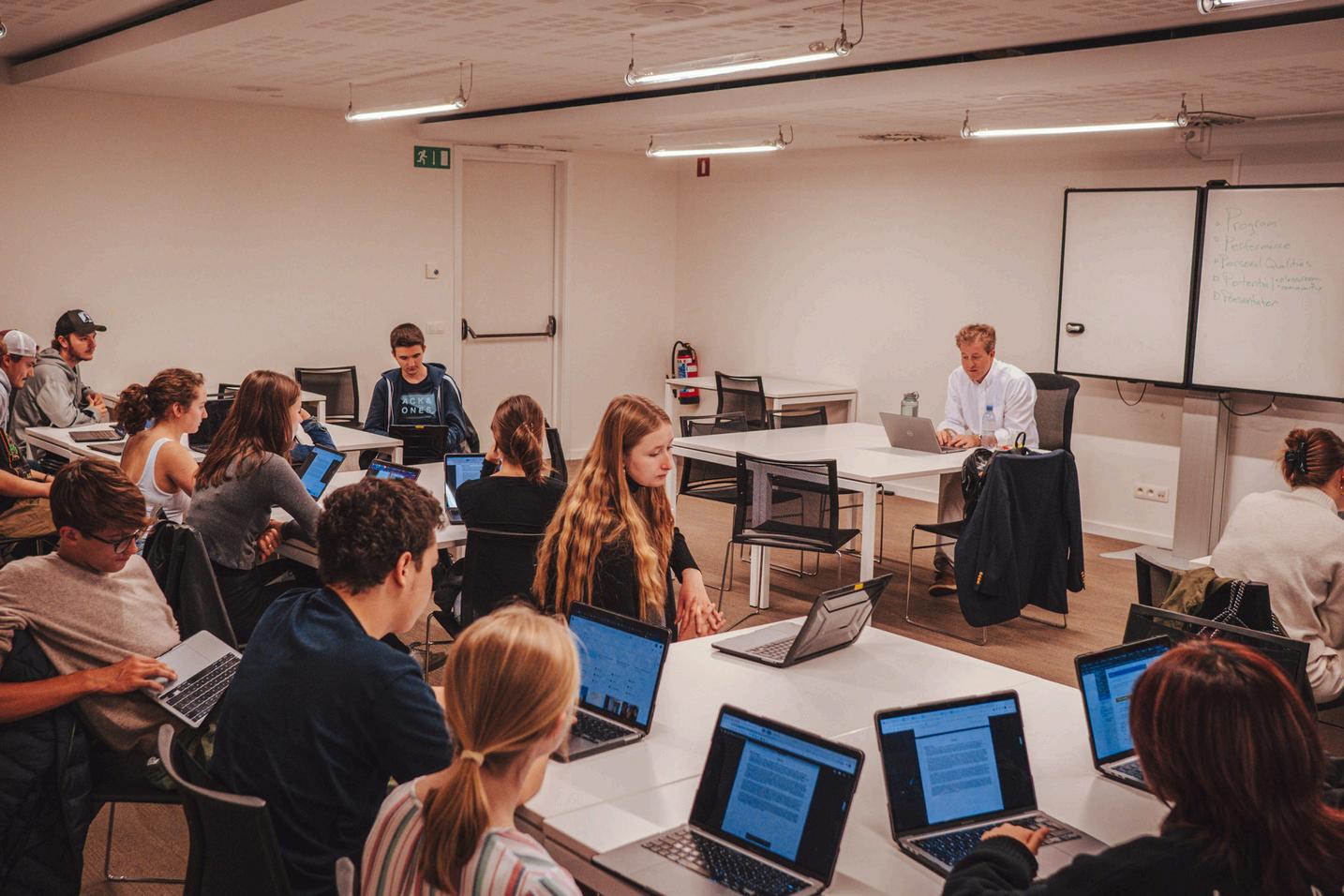
12
BTEC Grade Indicators
IB Assessment
In IB Courses, there are three types of assessment: School-based assessment
IB Internal Assessment
IB External Assessment
School-based assessment
Internal assessment (IA)
is when a subject teacher marks the students work and a sample is sent to an IB moderator and checked against worldwide marking standards and adjusted, if required Internal assessments are set according to subject and each subject has a different weighting attached to its IA. Internal assessment dates are spread over the 2 years of the courses, according to our internal deadline calendar
External assessments is used by teachers to monitor how well a student is progressing in a particular subject This can include assignments completed in class or at home, tests, quizzes, projects or mock examinations. These assessments are created by, assigned by and marked by the teacher. School-based assessment can be formative or summative in nature and is designed to help students understand what the assessment expectations, standards and practices are
are submitted to be examined externally. Unlike internal assessments, external assessments are not marked by their ISB teacher Instead, the mark is determined solely by an external examiner. Examples of external assessments include the Extended Essay, Language A HL essays, the TOK essay and all final IB examinations.
IB Grade Descriptors
13
Assessing the IB Core Components
For IB Diploma students, successful completion of CAS, the EE and TOK are a requirement for award of the IB Diploma. CAS is not assessed but will be reported as completed or not. For TOK and the Extended Essay, up to three extra Diploma points are available
The Extended Essay and the TOK essay and exhibition are measured against assessment criteria and students are awarded a letter grade (A-E) for each. The total number of bonus points awarded is determined according to the following matrix:and each subject has a different weighting attached to its IA Internal assessment dates are spread over the 2 years of the courses, according to our internal deadline calendar.
Theory of knowledge (TOK)
IB Course students may choose to complete an externally assessed CAS, EE or TOK certificate. Students should note, however, that Service Learning or CAS is a graduation requirement for all ISB students.
E D A B C N Grade awarded A 3 3 2 2 B 3 2 2 1 C 0 2 2 1 D 0 0 2 1 E N OR OR Failing condition Failing condition E x t e n d e d e s s a y
14
Failing condition
Criteria for Award of the IB Diploma
The total number of points awarded is 24 or more.
CAS requirements have been met.
There is no “N” awarded for TOK, the EE or for a contributing subject.
There is no grade E awarded for TOK and/or the EE
There is no grade 1 awarded in a subject/level.
There are no more than two grade 2s awarded (SL or HL).
There are no more than three grade 3s or below awarded (SL or HL).
The candidate has gained 12 points or more on HL subjects.
The candidate has gained 9 points or more on SL subjects.
The candidate has not received a penalty for academic misconduct from the Final Award Committee
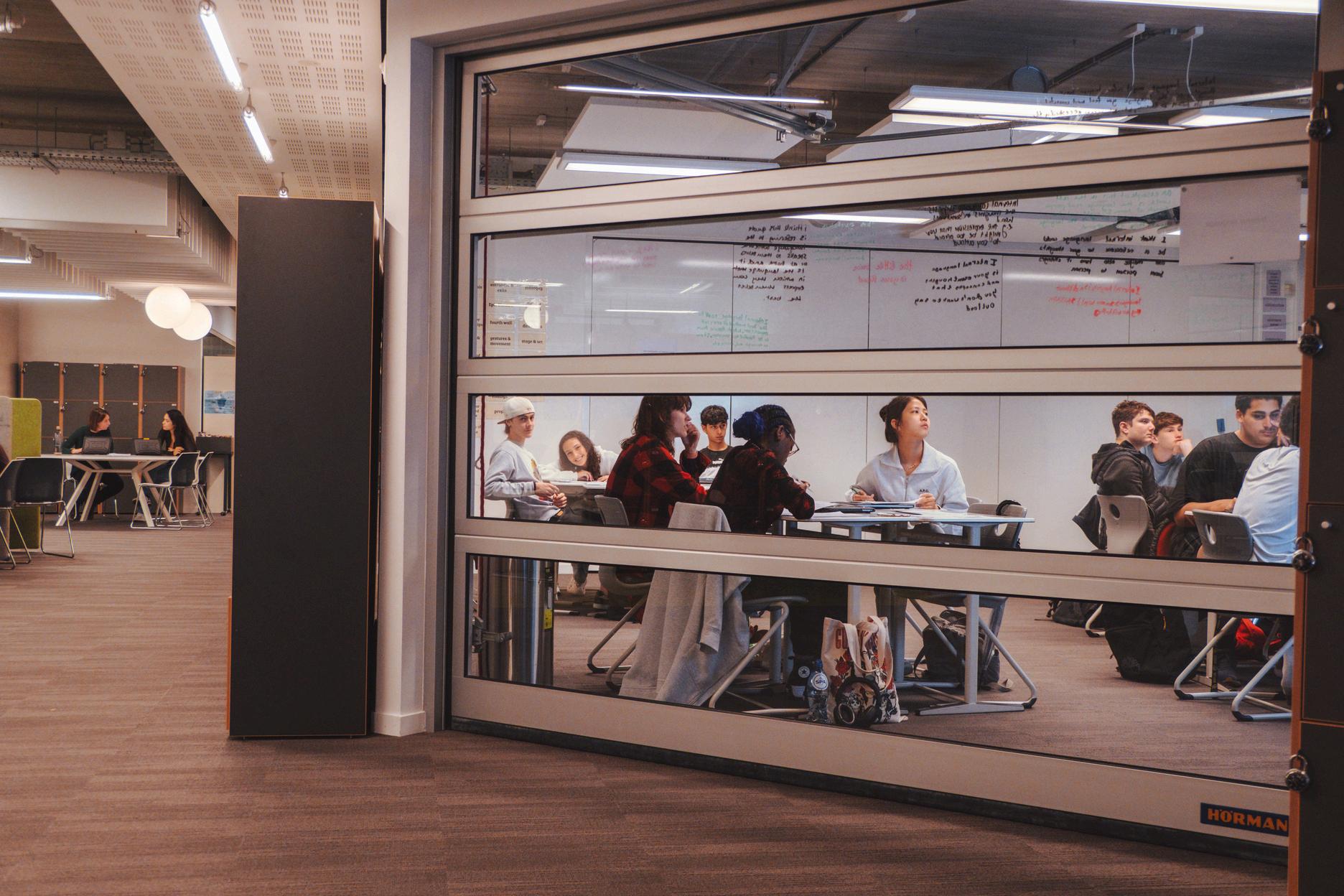
15
Learning Support and Assessment
At ISB, inclusion is at the heart of our mission to ensure all learners are challenged, included and successful Access and inclusion arrangements for learning, teaching and assessment are considered when a learner is identified as needing support through the Student Study Team process. This support can be provided for documented long-term cognitive, emotional or medical reasons and can include accommodations for assessments, as well as access to learning support services.
The school can provide inclusive access arrangements for students taking external examinations that align with their normal way of working in the high school. The purpose of these arrangements is not only to ensure that all students have equal opportunities for success but also to help students develop the academic and advocacy skills they will need in their postsecondary endeavors. The need for these arrangements is determined by the Learning Support department, in consultation with parents and teachers. It is vital that students have up to date documentation to support a request for accommodations.
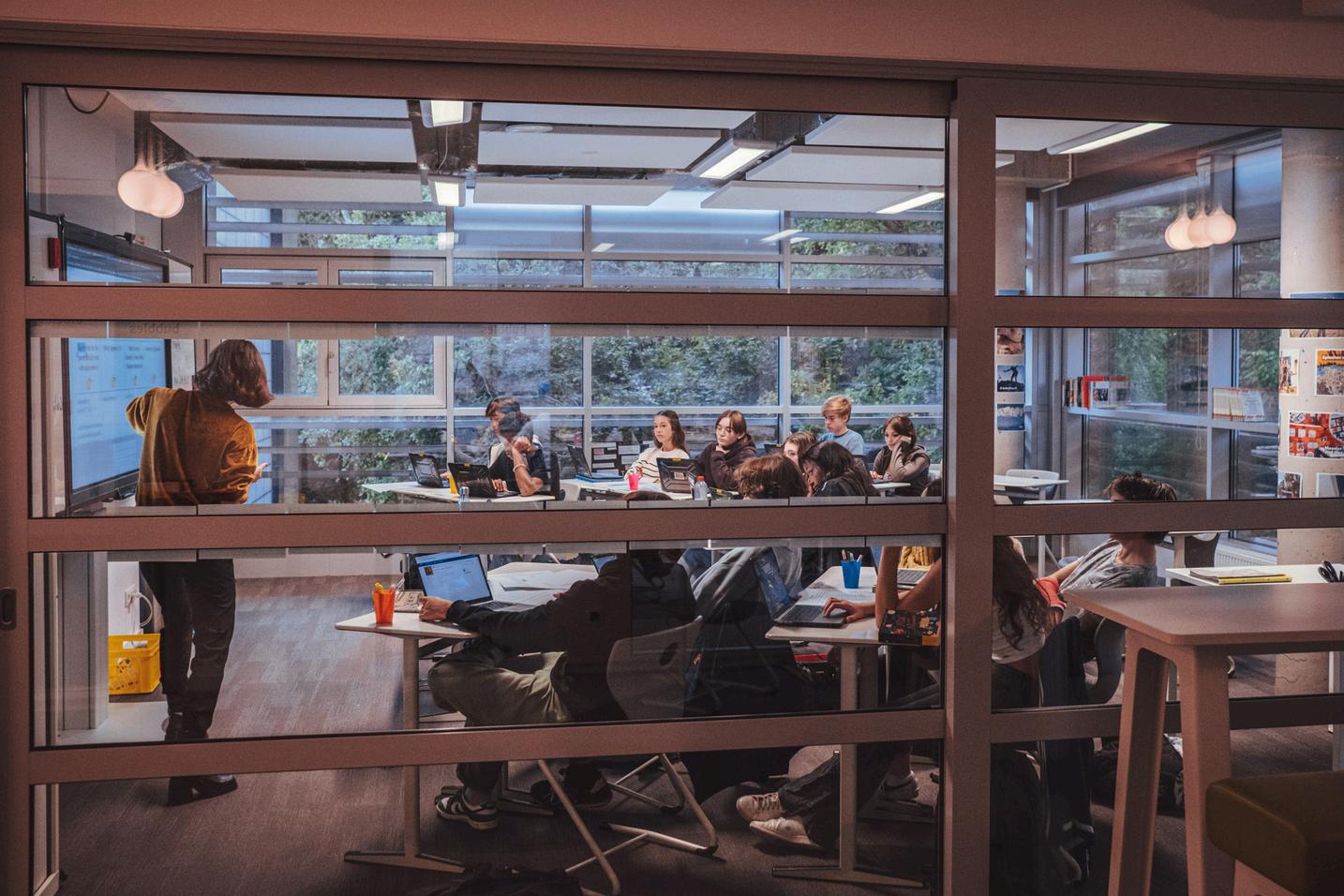
If a student is deemed to require inclusive assessment arrangements, an application is sent to the examining board for approval with the consent of the candidate and the candidate’s family. Applications should be submitted as early as possible and before October 15th of the student’s senior year, or of the year of the examination, in order to qualify for inclusive arrangements during their May exams.
Access arrangements must not only apply to students during summative assessments but also be their usual way of working throughout the course of study (this includes all timed work and formative assessments that are part of everyday learning and teaching).
16
Academic Integrity
Academic honesty and integrity expectations extend to all assessed and non-assessed school work -- formative or summative -- and to all documentation produced for use at ISB and for the university and college applications. It is the expectation at ISB that all work and documentation submitted by students is entirely their own All members of our community understand that integrity is the foundation of the development of independent, responsible and caring learners
Academic honesty and integrity mean:
citing appropriately those whose work is used in the preparation of an assignment completing school work without the input of others whose knowledge of the task might advantage the student unfairly submitting work for assessment that is representative of the student’s own learning and not that of others, individually or collectively maintaining a level of confidentiality and personal ownership of one’s own work, both assessed and non-assessed
Conversely, academic dishonesty means:
presenting work, ideas, words, images, data or arguments of others (including AI) as one’s own without citation (plagiarism)
copying or sharing work with others (unless specifically allowed) in any form (e g digitally sharing, downloading, in person) in a way that misrepresents a student’s ability or is intended to mislead the intended audience presenting work as one’s own which has been completed with the assistance of others (such as a parent/guardian, other students or tutors) or technology in a way that misrepresents a student’s ability or understanding making up or altering references, quotations, statistics, etc (fabrication or falsification) giving or receiving aid on or for examinations, tests, quizzes, projects, etc. including using outside materials on an examination, test, quiz, project, etc. except when authorised by a teacher duplication or resubmission of your own work that has already been assessed for same or cross subjects
unauthorised prior possession of assessment materials facilitating other students’ acts of academic dishonesty This includes providing other students with homework answers, test/quiz answers, original or photocopied essays, and related activities falsifying CAS/Service experiences or supervisor reviews gaining an unfair advantage on timed assessments or exams Examples of this may include:
Failing to obey instructions
Communicating with another student during an examination
Possession of unauthorised material
Consulting material outside the testing room (eg in bathrooms) during a period of absence
Behaving in any way that disrupts the examination or disturbs other students
Removing (or attempting to remove) ANY examination material from the exam room
Leaving the testing room without permission
Continuing to write when told to stop
Impersonating another student
Stealing examination papers either before or after the examination has been written
More information about academic integrity can be found in the HS Parent and Student Handbook
E x t e n d e d e s s a y
17
Academic Integrity (For IB Students)
“Academic integrity is a guiding principle in education and a choice to act in a responsible way whereby others can have trust in us as individuals. It is the foundation for ethical decisionmaking and behaviour in the production of legitimate, authentic and honest scholarly work.”
International Baccalaureate Organization, 2023
“It is an expectation that all IB students understand (sic)
» their responsibility for producing authentic and genuine individual and group work
» how to correctly attribute sources, acknowledging the work and ideas of others
» the responsible use of information technology and social media
» how to observe and adhere to ethical and honest practice during examinations.
The IB defines student academic misconduct as deliberate or inadvertent behaviour that has the potential to result in the student, or anyone else, gaining an unfair advantage in one or more components of assessment
Behaviour that may disadvantage another student is also regarded as academic misconduct It also includes any act that potentially threatens the integrity of IB examinations and assessments that happen before, during or after the completion of the assessment or examination, paperbased or on-screen ”
from “Academic Integrity,” International Baccalaureate Organization, 2023
E x t e n d e d e s s a y
18
For the IB, there are several types of academic misconduct:
Plagiarism
is when a candidate represents, intentionally or unwittingly, the ideas, words or work of another person without clear and explicit acknowledgment. This also includes the use of translated materials if they are not indicated and acknowledged In order to avoid academic misconduct, students must acknowledge the work of others through correct citation practices, both in the body of the text and in the bibliography, using the referencing style selected.
Collusion
is when a candidate supports academic misconduct by another student, for example allowing his or her work to be copied.
Misconduct
during an IB examination includes taking unauthorized material into an examination room, disruptive behaviour and communicating with others during the examination
Communication about the content of an examination
24 hours before or after the examination with others outside their school community is considered a breach to IB regulations
1 3 2 4 5
Duplication of work
is when a student presents the same work for different assessment components and/or Diploma Programme requirements.
Accurate and clear citation is a key element to academic integrity. Students should know how to indicate and cite any material that is not their own. Please note that this also applies to any material produced by or with the assistance of AI tools.
Students should be aware that any breach of IB regulations will result in serious consequences.
“ The IB does not regard any work produced even only in part by such tools to be their own Therefore, as with any quote or material from another source, it must be clear that any AI-generated text, image or graph included in a piece of work has been copied from such software
The software must be credited in the body of the text and appropriately referenced in the bibliography. If this is not done, the student would be misrepresenting content as it was not originally written by them which is a form of academic misconduct ”
19
from “Academic Integrity,” International Baccalaureate Organization, 2023
Deadlines, work practices and academic integrity
At ISB, the internal assessment calendar is produced in order to spread out many of the different IB assessment tasks. The idea for this is to help you manage your time effectively, to allow you to focus more on exam preparation and Group 6 deadlines in the second half of the year and also to enable you and your teachers to check the academic integrity of your work and assess it.
All students are expected to respect these deadlines. A request for an extension should only be made in extreme circumstances such as a prolonged illness. Failure to make a deadline can not only have negative consequences for you, but can also be perceived as a request for unfair treatment when compared to your classmates, and could well prevent teachers from preparing your work for submission to the IB on time You are therefore expected to use the deadline calendar to create a personal work schedule that does not involve working on a task only in the last few days before it is due
Teachers are also responsible for monitoring the progress of your work, and for providing formal and written feedback on one draft Because of this, you are required to create all written work that is part of your IA or eCoursework using Google docs that are shared with your teachers.
The submission of a draft on time is a vital step in the process. Teachers will store a copy of your draft before providing you with feedback. This draft will be used as the final document in the unlikely event of you not submitting a final piece of work on time
All your coursework will be checked for academic integrity. Faculty are required to declare that they believe that the work submitted is your own, and this means that they have to be confident that collusion with others or plagiarism have not taken place and that any primary data presented by you is authentic Missing deadlines can be interpreted as a deliberate attempt to prevent teachers from carrying out this duty and may result in work not being submitted
It is therefore your responsibility to ensure that:
You do not work with other people, either inside or out of school, when completing an assessment unless you are expressly required to work in a group. You correctly and completely cite any work of others (including AI tools) that you refer to or use in your work This includes numerical data and images as well as text
You do not receive non-permitted assistance in the completion or editing of work, such as from friends, relatives, other students, private tutors, essay writing or copy-editing services, prewritten essay banks or file sharing websites.
You are able to provide evidence of the collection of any primary data.
By being familiar with your usual style of writing, by following the process of developing your documents in Google and by using internet checks including Turnitin, your teachers will be able to verify the authenticity of your work.
20
6
Code of Conduct for IB Examinations
Both mock and externally-assessed examinations are governed by a strict code of conduct to make sure that the assessment takes place in a fair, safe and comfortable environment. All students will need to become familiar with the expectations for conduct during the examinations.
Arriving for the examination
All students should arrive at school 30 minutes before the exams are scheduled to begin. When candidates are admitted to the exam room, they must enter in a quiet and orderly manner
In the exam room
Once they are in the exam room, students must not communicate with anyone other than the proctors for the duration of the exam. Apart from a transparent bottle of drinking water, no food or drink can be taken into the examination room unless the candidate has a medical condition. The proctor will tell candidates where to sit and candidates can take only the following items to their assigned desk:
Pens, pencils, erasers, a rule, pencil sharpener, highlighters, a transparent bottle of water
A calculator (for exams which allows its use)
A translating dictionary if approved by the Coordinator (permitted for all exams except language exams)
No bags or mobile phones are permitted in the exam room. No candidate is allowed to borrow anything from another candidate during an examination.
Late Arrivals
Candidates are allowed into the exam room during the first 60 minutes after the beginning of the exam After this time, they are no longer allowed in the exam room Candidates who are late without a valid reason will not be given additional time for their examination 7 9 10 8
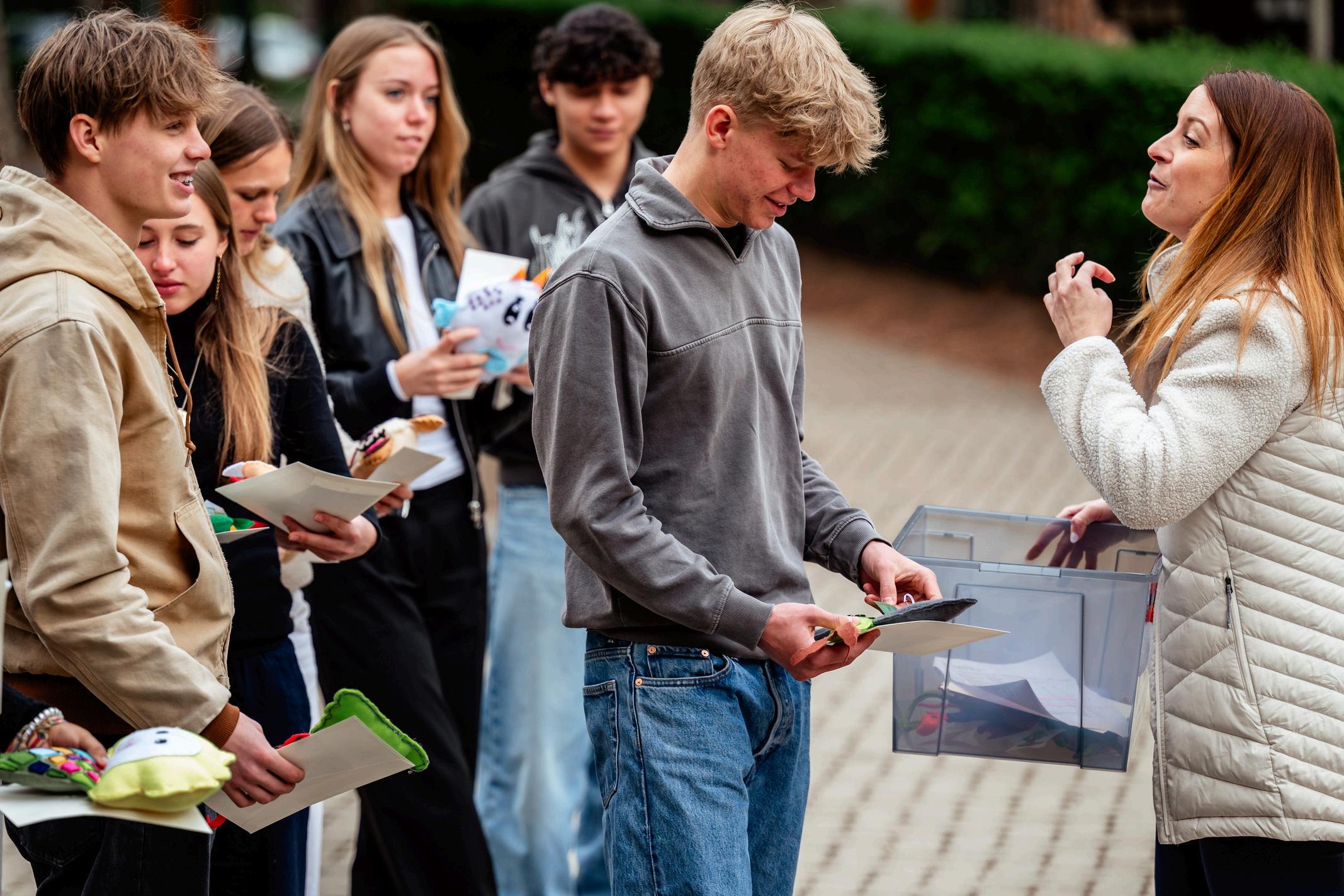
21
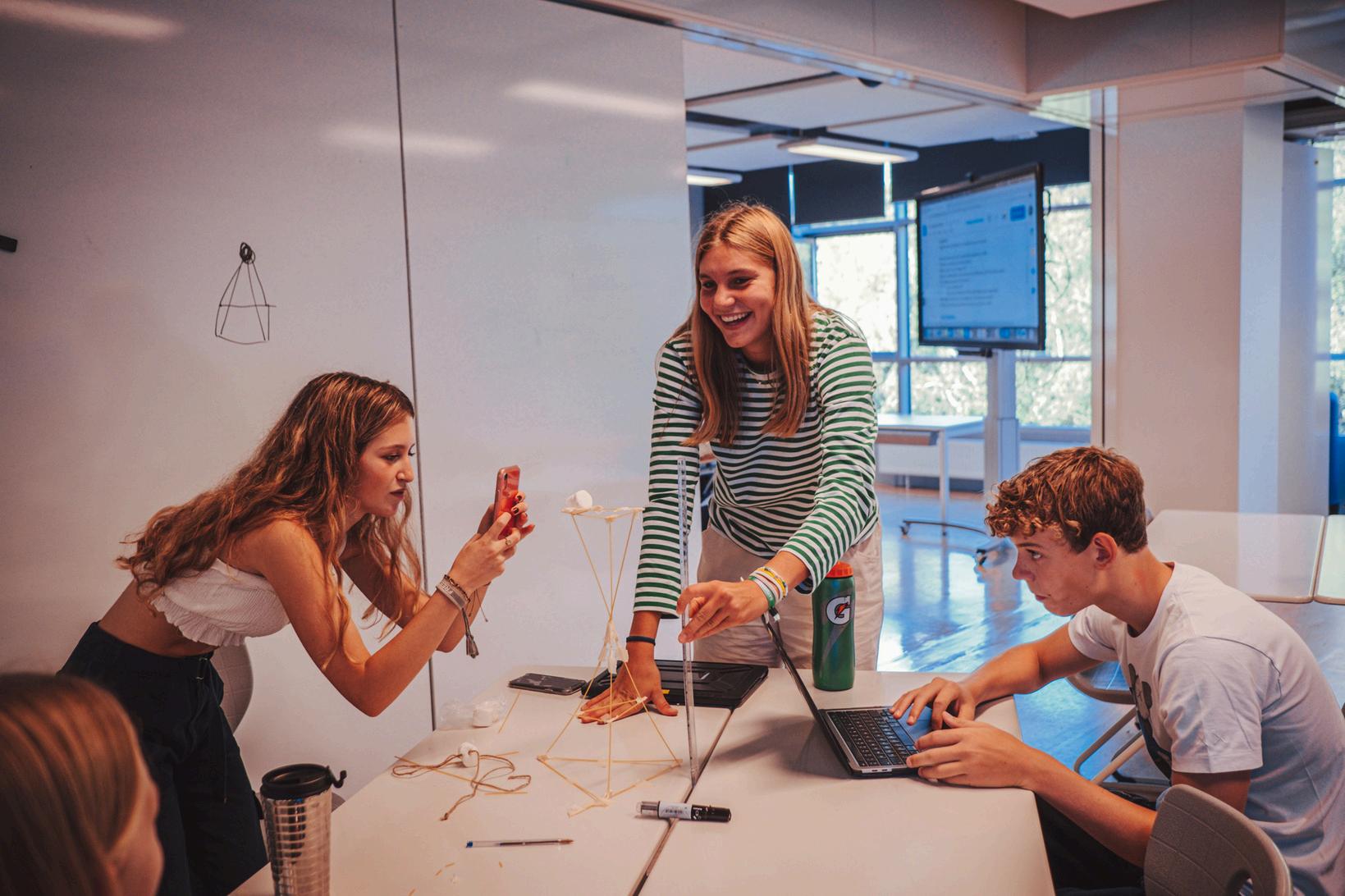
Ending the examination
Candidates must ensure that they complete the cover pages for each examination before they leave the exam room. They must give all examination papers, answer sheets and rough notes to the proctor at the end of the exam.
Academic misconduct during examinations
All work completed during an examination and submitted for assessment must be the authentic work of the candidate Any collusion, plagiarism, reference to unauthorized material or communication between candidates may constitute misconduct.
Any attempt to gain information about the contents of an examination, or discuss an examination with a person or person outside of the school within the first 24 hours after it has taken place, also constitutes a breach of IB regulations.
Any breaches of IB regulations or instances of academic misconduct will be reported to the IB
Dedicated sessions will be held to familiarize all students with the rules and regulations pertaining to their examinations before the mock exams take place.
22
11 12
Projected and Predicted Grades
AProjected Grades
In addition to the ISB grades, which report on a student’s achievement in their courses to date, and awarded grades which are given by the external awarding body (such as the College Board or the IB), students may also receive projected grades to support their university selection and application process The projected grades process begins in May of the student’s Grade 11 year
These grades can subsequently be updated twice, in October and December of the senior year
Projected grades serve two purposes:
1.
To provide feedback to students about their potential for attainment in their externally awarded assessments (such as IB, BTEC and, if required, AP). Teachers make these projections based on performance in school-based assessments and their professional judgment, given their knowledge of the future assessments and of units of work yet to be covered. The importance of these grades are to stimulate dialogue between teachers and students about student progress and strategies for future improvement.
2.
In a student’s senior year, the projected grades are sent to universities and colleges along with references and other requested information in support of their applications. These projections are evidence based and “optimistically realistic.” If a student is on a borderline between two grades, the upper grade will be made as the prediction in support of a student’s application
Students should not lobby or negotiate grades with their teachers. If they have a concern about their projections, they should speak to their counsellors about this
Please note that these projections are not shared with the IB or any other external assessment board or organization and they do not have any impact on a student’s awarded grades.
23
IB Predicted Grades
For students taking IB examinations, these predictions are submitted to the IB in March of a student’s senior year but they are not submitted to universities
The IB uses the combined predicted grades from all schools to make decisions about grade boundaries after the exams have been completed. Under normal circumstances, these predictions have no impact on a student’s awarded grade, as the IB relies only on student performance to award a grade.

The predictions have to be as realistic as possible in order to assist the IB in grade award. Because these predictions are made after the projected grades, there is more evidence available to teachers. Internal assessment tasks have been completed and in many subjects mock exams have been written For this reason, in some cases the predicted grades may differ from the projected grades.
Students and families receive notification of these predictions after the exam session in the last week of May
24
B
High School Counselling
The world is full of exciting options for post-ISB life, and the process of finding the opportunities that fit each individual is student-centred and student-driven Students, in collaboration with their counsellors and parents/guardians, are encouraged to embark on a journey of self-discovery and reflection as they engage in thoughtful research, honest self-assessment, and increasingly independent decisions. At its best, students find their voice during this journey as they explore and challenge their assumptions about themselves and the options they are considering
The High School Counselling Team offers students and families the benefit of over 80 years combined experience in global university/college admissions! We run a team approach to comprehensive counselling; and while students will have an assigned counsellor we have an open-door/above-board practice and will involve the expertise of another counsellor if the student would benefit from it The post-ISB process is student-led in that individual students have responsibility for all requirements and deadlines, as the counsellors guide, support, scaffold and track their progress along the way.
We all have a common objective: Working towards each student’s goals and success!
Who are the High School Counsellors and the Social Emotional Counsellor?
Location: Counselling Offices, High School Building, Commons 200, Rooms 229 - 234
Students’ counsellors are determined by family name, unless otherwise communicated on PowerSchool The Social/Emotional Counsellor is available to support all High School students
Family Name Counsellor
A - De Ms Karen Sagall
Dh - L
Ms Amy Durrant
M - R Ms Jenni Franklin
S - Z Ms Catherine Irvine
All Students (Social/Emotional)
Ms Katie Cherry
25
Tips to Working Effectively with Your Counsellor:
Be proactive in making appointments - there are QR-Codes outside the office and links in email signatures
If you can’t find a time to meet, send your counsellor an email with possible days and times that you are available
Remember your appointments Be on time If you have to miss your appointment, cancel ahead of time, and book a new one
Come prepared for meetings with your laptop, pen/paper, and questions. Take notes.
If you ever feel confused or disappointed by something said in a meeting, clarify what was meant with your counsellor. We do believe in you!
Provide at least 10 working days (before deadlines) for all document requests.
Abide by the High School Counselling Senior Agreement (see Appendix).
Please always be open and honest with your counsellor!
A Note on Email Etiquette
Please try to avoid making requests by email. We receive many emails each day and might take longer to reply; it is usually more efficient to make an appointment instead Remember that when sending emails, practice professional writing style, politeness and kindness. If you have emailed and do not get a response in what you feel is a timely manner, send a kind reminder
The Role of the Registrar in College Applications
The High School Registrar, Ms. Anne Callender, is the go-to person for official school documents that may include transcripts and university-specific forms You can request the documents you need by completing the ‘University Application Document Request Form’ found in the MaiaLearning Resources section Please give 10 working days for your documents to be completed and delivered. Once completed, documents will be uploaded to your MaiaLearning MaiaDrive
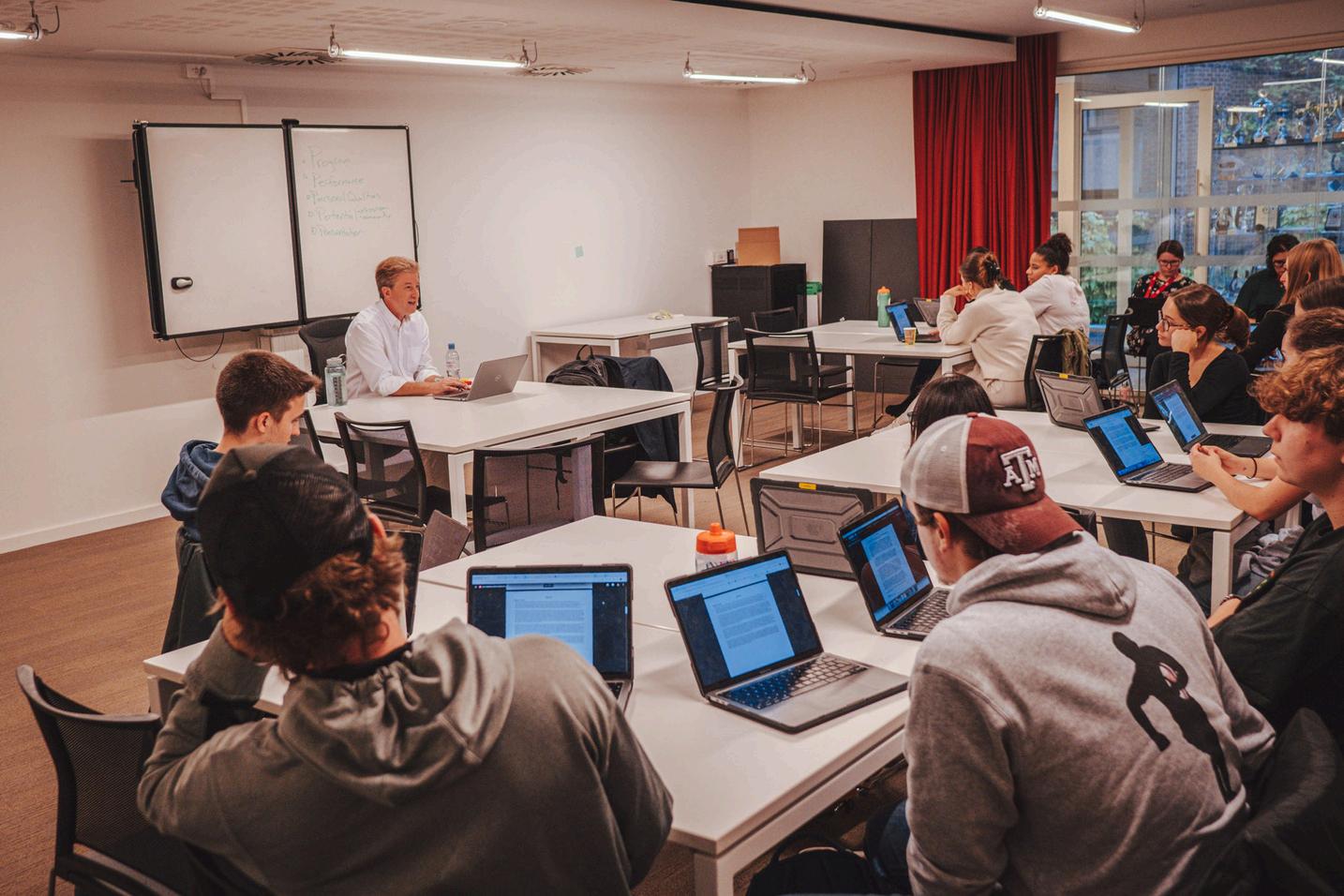
26
Top Tips for Your College/University Applications:
Refer back to the foundational work you completed in Grade 11 and over the summer
Meet with your counsellor regularly and frequently in the first semester
Be proactive - don’t wait to be chased!
Use study blocks effectively
Build a balanced list of university/college applications
We recommend no more than ten applications total
Attend all relevant/required workshops & meet with university reps when they visit
Meet deadlines comfortably
Plan and expect to be finished by the winter holidays!
ISB University Deadlines
These are a summary of internal deadlines that students are expected to meet:
23 October 2024 US: Early Decision and Early ActionCanada: University of Toronto and University of British Columbia (UBC), McGill 22 November 2024 US: University of California
13 December 2024 ALL applications where systems are open
27 Date Which applications?
October 2024
Cambridge, Medicine, Veterinary Science, Dentistry
8
UCAS for Oxford,
The value of the Internal Deadline and why should it be met:
These dates are determined with your academic work in mind - to allow for more efficient work flow
As we have many students applying to many countries and many students applying to multiple countries, these deadlines help to ensure attention can be paid to each student’s process; if you miss an internal deadline, your application may fall to the back of the queue For some systems, Counsellors or the Registrar cannot send documents until you do; if you push the external deadline, you may not leave the school time to support your application. Submitting an application before the external deadline, ensures that a completed application can be sent; it allows time to follow up missing items. Applications that push the external deadline are rarely a student’s best work. If you miss an external deadline, there is often nothing we can do!
External Deadlines
These systems appear in order of general popularity of application: (a guide only; these are subject to change on an annual basis)
2 October, 2024: most UK Conservatoires.
15 October, 2024: Medicine, dentistry, veterinary medicine/science courses, as well as all courses at the universities of Oxford and Cambridge.
29 January, 2025: All other courses and universities.
United Kingdom United States
The following dates are a guide only:
15 October, 2024 - 1 December, 2024: Early Action or Early Decision
15 December, 2024 - 1 February, 2025: Regular Decision and Early Decision 2
Check the deadline of each individual university to which you are applying.
Be aware that application deadlines may be earlier for scholarship consideration
28
The Netherlands
Deadlines are determined by the specific programme at a university and should be checked
Different programmes at the same university can have different deadlines. The following dates are a guide only.
1 November, 2024 - December 15, 2024: “Early Bird” applications for certain programmes and University Colleges.
15 January, 2025: typical for selective programmes, including Numerus Fixus and University Colleges
1 April, 2025 (non-EEA) / 1 May, 2025 (EEA): some programmes offer “rolling admissions” and this often is the final deadline
Home Countries and Other European universities
Typically, deadlines are determined by the specific programme and individual university and should be checked by the student and communicated to the counsellor.
Canada
Deadlines, in a number of cases, can be determined by the individual university and should be checked by the student
Early-mid November: early review at certain universities (Toronto, McGill, UBC)
15 January, 2025: typical deadline for Ontario and many other university applications
Southern Hemisphere
Most Southern Hemisphere schools work on a different timeline of application and study and do not open their application systems until the fall after graduation In some cases, international students can apply to universities during the spring of their senior year. Students should check each university for its deadlines. Students can also consider if they want to start in January (start of the academic year) or July (midyear)
29
Satellite campuses
There are many universities that have a satellite campus(es) at another location in the same country or indeed in a different country altogether The benefit of these satellite campuses is that you often get a more attentive learning experience (smaller campus) in a location you want to be, while getting an education from a university you wouldn’t or couldn’t be able to apply to because of the main campus’ location In addition, you might find there are different entry requirements that facilitate your application.
Some examples include:
Arizona State University Ho Chi Minh, Duke Kunshan University, EHL Singapore, George Mason Incheon, Heriot-Watt University Malaysia and Dubai, Lancaster University Leipzig, Northeastern London, NYU Shanghai and Abu Dhabi, SCAD Hong Kong, Temple University Japan, University of Nottingham China and Malaysia, University of Wollongong Dubai, University of York Europe Campus (Cyprus)
Each will have their own deadline and it could differ from the home campus of that university.
As members of a number of High School Counselling and University Admissions accrediting bodies and associations, ISB’s counselling team adhere to a number of practices that preserve integrity and effectiveness of our school and our students. Please carefully read the ISB HS Counselling Senior Agreement to understand these measures and why they are important to the success of post-ISB planning and admissions.
Please always remember: we believe in you and we want to see you succeed at and beyond ISB!

30
Senior Timeline
August 2024
Senior year begins
Student agreements (IB, Counselling, etc) shared and signed
September 2024
Grade 12 two-day Retreat/Workshops
Completion for the Extended Essay
Post-ISB action plan developed
October 2024
Registration for IB and AP exams and requests for assessment accommodations finalized (by October 15th).
Completion of the EE
Projected Grades used in university applications are issued
Oxbridge, UK Medicine, Veterinarian Medicine and Dentistry deadline (external)
November 2024
Many USA ED/EA Application Deadlines, University of California deadlines and many Canadian early application deadlines (external)
December 2024
Internal assessment for most subjects (Groups 1-5) are completed
Projected Grades may be updated for university applications
Internal deadline for all university/college applications within systems that are open
Some Netherland university application deadline (external)
January 2025
UK UCAS deadline (external)
US university application deadline (external)
A number of European universities have deadlines this month (external)
31
February 2025
IB Mock examinations
IB Core: CAS/SL and TOK completed
March 2025
AP Mock examinations
All remaining IB internal assessments (particularly group 6) completed
IB Predicted Grades sent to the IB
April 2025
Last day of school for seniors (April 4th)
Requests for results services (including legalization of results/diplomas) submitted to ISB
May 2025
IB written examination session (from April 28th to May 21st)
AP written examination session (from May 5th to May 16th)
ISB written examinations
June 2025
Seniors return to school fo graduation rehearsal, Awards ceremony and senior transition activities
ISB graduation ceremony (June 6th)
US HS Transcript sent to universities when required
July 2025
AP Results available early July
IB results available on 6 July 2024
Conditional offers for universities are finalized
August 2025
BTEC results available
32
Grade 12 (IB 2) Student Deadlines
Please consult the calendar below for your assessment deadlines this year For more details, please ask your teacher Unless otherwise stated, deadlines apply to both SL and HL courses
Note that drafts and final pieces of work should be submitted electronically and on time Missing a deadline can lead to a grade N being awarded by the IB in each subject
All assessed work is subject to academic integrity checks
Any work that cannot be verified as your own will not be submitted to the IB
Week
26-30 August
2-6 September
9-13 September
16-20 September
23-27 September (No school on the 23rd)
30 September4 October
Drafts and interim deadlines
Tasks during this week
Final IB assessed work
7-11 Octoberr
Extended Essay draft due (3 September)
DT HL/SL Criterion A milestone
Computer Science SL/HL Criterion AMusic - Experimenting Creating 1, Presenting 1
Computer Science SL/HL Criterion BGeography draft IA (29 September) Music - Performance 4
Business research project HL/SL draft English Lit IOsMusic - Experimenting Creating 2, Presenting 2 Biology HL/SL IA draft September 27th
DT HL Criterion B milestone
Physics HL IA draft - October 11thESS IA draft October 11th Music - Experimenting Creating 3, Presenting 3 Music - Experimenting Draft
DT SL Criterion B milestone
14-18 October (Learning Conferences 17-18)
Psychology SL/HL IA draft Music - Performance 5
Turnitin opens for EE submission
Turnitin open for EE submissionSecond EE reflection due (1 October)
IB Visual Arts Completed Project 6Dutch Lang A Orals
EE/RP Final Upload to Turnitin (7 October)
Comments/ Other events
Submission of student agreements to the IB Office
21-25 October
Global Politics SL/HL
Chemistry HL IA draft October 23rd
Physics SL IA draft October 23rd
Music - CMM - Project Submission 1st DRAFT
Biology SL IA Final October 14th
Swedish A Individual Orals
Theatre Collaborative Project Performances
Group 6 Studio half- day (12:45-15:40)
8 October: Oxbridge + UK Med/Dent/Vet deadline
Short week (Learning Conferences)
23 October: US ED/EA, Canada (UBC - with early application)
IB registration complete Students and parents to check and sign course registration documents
MID-TERM BREAK (28th October - 1st November)
33
4-8
November
11-15
November
18-22
November
25- 29 November
Tasks during this week
Drafts and interim deadlines Final IB assessed
Economics Commentary 3 draft
Theatre Collaborative Project Portfolio draft Nov 6
Chemistry SL IA draft November 13th
SEHS HL/SL IA Draft November 13th
Math draft (wave 1)
Computer Science SL/HL Criterion C Music - Performance 6
Math draft (wave 2)
English Lit HL Essay draft
English Lang and Lit HL Essay draft
DT HL Criterion C milestone
Computer Science SL/HL Criterion D
Math draft (wave 3)
2-6December
9-13
December
16-20
December
6-10 January (NO classes Monday, Tuesday)
DT HL Criterion D milestone
CAS/SL - HALFWAY POINTTOK essay
draft (9 December)
Theatre Production Proposal draft Dec 13
Music - Performance 7
Physics HL Final November 8th
ESS IA Final November 8th
Music - Experimenting Portfolio Japanese B orals
Viva Voce and EE/RP Final Upload to ManageBac (15 November)
Biology HL Final October 25th
IB Visual Arts Completed Project 7
EE/RP Final reflection (November 22)
Chemistry HL Final November 20th
Economics Commentary 3 Geography SL/H Final
Psychology SL/HL IA Final (1ST DEC)
Physics SL IA Final November 20th
Theatre Collaborative Project Portfolio
November 27th
Business research project HL/SL Final
Chemistry SL Final December 4th
SEHS SL/HL Final December 4th
Global Politics SL/ HL
French B SL oral exam
WINTER BREAK (23
December - 6 January)
Group 6 Exam and Studio half-day
IB Visual Arts - Upload Comparative Study
IB Visual Arts Completed Project 8
Theatre Production Proposal Jan 8
13-17 January
20-24 January
27-31 January
3-7 February Week
Music - Presenting / Creating 1st draft
Computer Science
SL/HL Criterion E
DT HL Criterion E milestone
Math Final IA
DT SL IA Deadline
English B OralsEnglish A Lit HL
Essay English A Lang and Lit HL
Essay Dutch A HL EssayFrench A HL
EssayJapanese A HL Essay
TOK Essay final (27 January)
Visual Arts Mock Exam Submission (31 January)
MOCK EXAMINATIONS
22 November: University of California
13 December; All applications due for university
Short week
1 January - 1 February: USA Regular Decision external deadlines
15 January external deadline for NF/selective Dutch programmes
29 January: final external deadline for UCAS
(5 day exam period, all students except BTEC, AP and IB1 off timetable)
work Comments/ Other events 34
Tasks
Drafts and interim deadlines
10-14
February Economics commentary 4 draft
17-21
February
3-7 March
10-14 March (Learning Conferences on the 13-14)
17-21 March
24-28 March
31 March - 4 April
7 -11 April
Theatre HL Solo Portfolio draft March 20
Computer Science SL/HLFinal
Group 6 Studio half-day Deadline for CAS completion DT HL Final IA Language B (French HL, Spanish and Dutch) and Ab initio orals (French, Spanish) Music - Presenting / Creating
Comments/ Other events
CAS/SL exit interviews during PLGlobal Politics HL/SL Oral 2
CAS/SL exit interviews during PL IB Visual Arts - Curatorial Rationale and Exhibition text deadline Theatre HL Solo Presentation Performances March 10 and 12
Economics commentary 4 IB Visual ArtsCompleted Project (if needed for HL)Visual Arts Vernissage (17 March)
Visual Arts eCoursework upload (24 March)
Theatre HL Solo Performance Report March 31
Theatre eCoursework upload April 2-4 Last day for seniors (April 4th)
Short week - Learning Conferences
Complete IB results for university and legalization form.
IB EXAMS Week
Study leave for seniors April 28 - May 21
week CARNAVAL (February) HOLIDAY (24-28 February) SPRING BREAK
during this
(14th-25th April)
Final IB assessed work
35

IB Programme STUDENT AGREEMENT 2024 – 2025
Student name:
Grade 12
It is important that you read this agreement with your parents to ensure that all parties understand and agree with requirements before the commencement of Grade 12. A signed copy of this agreement should then be handed in to Mrs. Callender at the IB office (HS 236) by Monday, September 2nd, 2024.
1. IB Registration:
(a)Students must make any changes to their registration for IB examinations before October 15th, 2024.
(b)All students who register for IB exams will pay exam registration and administrative fees. Parents and students are responsible for checking the details of registration as any changes made after November 15th, 2024 will incur additional expenses from the IB
2Meeting Deadlines:
The major draft deadlines and the final submission deadlines are not negotiable. Failure to meet a draft deadline will result in immediate assignment to study hall until the teacher determines that adequate progress has been made A student who misses a final ISB deadline may not be entitled to feedback and risks coursework not being submitted to the IB for assessment. This would mean that no grade will be awarded for the subject and for IBDP and IBCP students, it means that no diploma or certificate would be awarded. Any application for an extension to the final submission deadline (granted only in exceptional circumstances) must be made 48 hours in advance using the ISB extension request form
3.Core Component Expectations:
Each Core component (Extended Essay/Reflective Project, Theory of Knowledge/Personal and Professional Skills, CAS/Service Learning, Language Development) has specific requirements and deadlines For IBDP and IBCP students, the Core requirements must be met in order for a student to be awarded a Diploma The requirements for CAS/SL are outlined on Schoology Students must read the requirements and be aware of what is expected.
4Adhering to Standards of Academic Integrity:
“The IB defines academic misconduct as behavior (whether deliberate or inadvertent) that results in, or may result in, the candidate or any other candidate gaining an unfair advantage in one or more components of assessment” 1 Academic misconduct includes plagiarism, collusion, duplication of work, falsification of data and misconduct during examinations
Academic misconduct could lead to removal from the IB session for all subjects, and the student may be banned from future IB examination sessions It is the student’s responsibility to understand and follow IB standards for ethical academic practice Students will be required to sign a form to declare that all work meets the agreed requirements for academic honesty
1 IB Academic Honesty Pamphlet
–

Academic misconduct could lead to removal from the IB session for all subjects, and the student may be banned from future IB examination sessions It is the student’s responsibility to understand and follow IB standards for ethical academic practice Students will be required to sign a form to declare that all work meets the agreed requirements for academic honesty.
5.Change of BTEC, IB DP subjects, levels (SL/HL) and TOK:
Students will not ordinarily be permitted to change courses or levels, or drop courses altogether after September 30th of Grade 11
Any change in schedule can only happen on the school’s recommendation and with the agreement of the Head of High School, IB coordinator, the counselor and the teachers involved.
6.Requirement to maintain backup copies of all IB work:
Students are responsible for keeping a secure copy of all their work until the results have been published in July
7.Consent:
Students allow the programme coordinator or another authorized school staff member to upload their work to the IB’s eCoursework system for the purpose of assessment or moderation. Students also allow the school to make use of their coursework or exam responses for educational purposes, as long as their work is used anonymously
8.Exclusive copyrights of your IB work:
Please contact the IB coordinator if you wish to have exclusive copyright of your work If this request is not filed, your work can be published online by the IB or used for other purposes such as training new examiners. This form needs to be sent to the IB by May 1, 2025.
Declaration:
I have read and understood the conditions above as well as the IB General Regulations document and the Academic Honesty document The IB News website for ISB can be accessed here: https://sitesgooglecom/isbbe/ibnews/home
Date:
STUDENT Name: Signature:
PARENTS(s) Name: Signature:

ISB HS Counselling Senior Agreement
Please sign and return this form to HS Counselling by 27 September, 2024
Student name:
Counsellor:
Welcome to your Senior Year! As your counsellors, we are here to support and advocate for you this year and with your post-ISB goals Though this process will be led by you, it is important that we work in partnership with open communication and with an agreement of responsibilities that are essential to your success.
Application Review
All applications must be communicated to and reviewed by your Counsellor. This ensures that your applications are thorough, complete and in line with your post-ISB goals. For application systems that allow, students are strongly encouraged to submit all applications before the December Break
Transcript and Application Documents
Applications will remain incomplete until you have provided any final transcripts from schools you have attended prior to ISB (Grade 9 onwards). You are responsible for requesting all application documents at least 10 working days before an application deadline All application, transcript, and document requests must be made initially in MaiaLearning If anything additional is needed, you must submit the request using the Document Request Form linked on the Maia Resources Tab It is your responsibility to provide the Counselling Office with any university-specific forms that you need completed no less than ten working days before external deadlines. You must also provide relevant registration or application numbers (ie OUAC, UCAS, CAO, Common App, etc) for all forms to ensure universities match your documents to your application file
Confidential Recommendation
You are responsible for notifying your counsellor of all recommendation requests, which will be recorded in MaiaLearning. It is essential that recommendations remain confidential as these will carry more weight with post-ISB institutions. You must follow internal deadlines for recommendation requests and give your recommenders no less than ten working days to write your recommendation All your confidential documents will be stored securely in a GDPR-compliant environment and sent directly to your requested post-ISB destinations.
Standardized Testing
It is your responsibility to track, register, and submit standardized testing requirements. You will need to request testing organisations such as College Board (SAT), TOEFL, IELTS, or any additional test results, including UCAT and LNAT, send their results directly to the university or system requiring it Due to the regulations of testing organisations and the universities, the ISB HS Counselling Office is not permitted to submit testing results on your behalf.

USA Early Decision Applications
If you apply Early Decision (ED) to a USA college or university, you are committing to enrollment at the institution if admitted. Therefore, if you gain ED admission, you are obliged to withdraw all other applications worldwide and complete enrollment with the ED university you have chosen No further documentation will be sent on your behalf from the ISB HS Counselling Office to any other institutions
External Counselling
If you are using an external advisor, it is important to provide the name of the consultant to your counsellor Please note that because of GDPR and privacy restrictions we are not permitted to share information with these third parties
Declining Offers
Once you have made your college decision, it is important that you decline outstanding offers to other universities in a timely manner. This is an act of good faith toward your fellow students, as it will ensure that a spot is available for someone else who may want it. Declining properly can also be important if you decide to study at that institution at a future date
Authenticity of Work
Universities are aware of AI and have various measures to verify the authenticity of student work The ISB student and parent handbook states, ‘Academic honesty and integrity are expected traits in all students and are afforded the utmost value by all members of the faculty. The academic reputation of our students and the school in the wider community depend on it It is the expectation at ISB that all work and documentation submitted by the students is entirely their own’ You are responsible for working with your counsellor and for sharing drafts of your application writing before presenting final pieces If questions arise around the authenticity of a student’s work, the HS Counselling Department reserves the right to inquire further, which may involve similarity detection software.
Ownership of Process
ISB High School Counsellors are informed and experienced international school practitioners We are proud of the breadth, depth and variety of applications submitted by ISB students International admissions, however, is an ever-changing environment with unique university-specific requirements As such, it is your responsibility to know these requirements, along with the timelines and documentation required by the universities to which you intend to apply.

Agreement
In signing below I state that I understand and agree to the procedures detailed above, and grant permission to the International School of Brussels to release any required documents in support of my/my child’s applications. I understand that these documents will only be sent upon request and as governed by applicable procedures and laws, and that potential recipients include schools and universities, financial aid providers, government agencies and employers
Date:
Place:
STUDENT Name:
PARENT/GUARDIAN Name:
Signature:
Signature:
Useful Resources
This document offers an overview of the principles which underpin the IB’s educational programmes
This document provides general guidance about citing and referencing in the IB’s educational context
These are the general regulations governing the implementation of the Diploma Program and the award of an IB Diploma
This parent pack provides an overview of the Diploma Program and answers some frequently asked questions.
This brochure provides an overview of the expectations for academic honesty, as well as some guidance for parents and students.
This site provides detailed information about the different offerings of BTEC qualifications and courses.
What is an IB Education? Effective Citing and Referencing Diploma
BTEC
Academic
Programme - Parent Pack
Level 3 Diploma Qualification
Honesty in the Diploma Programme General Regulations for the Diploma Programme
41
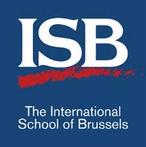
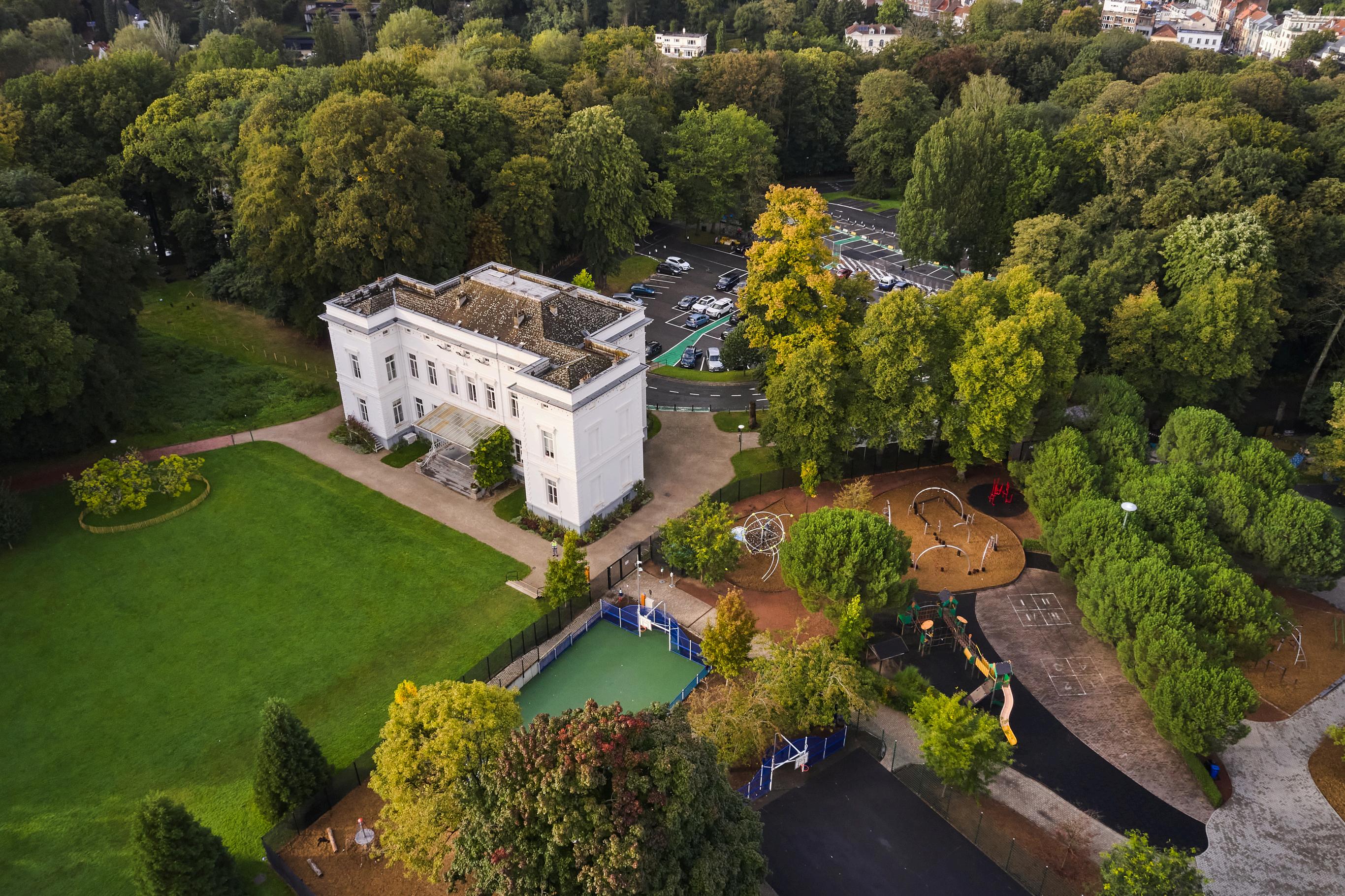

19, 1170 Brussels T: +32 2661 42 • F: +32 2661 42 00 www.isb.be
Kattenberg























